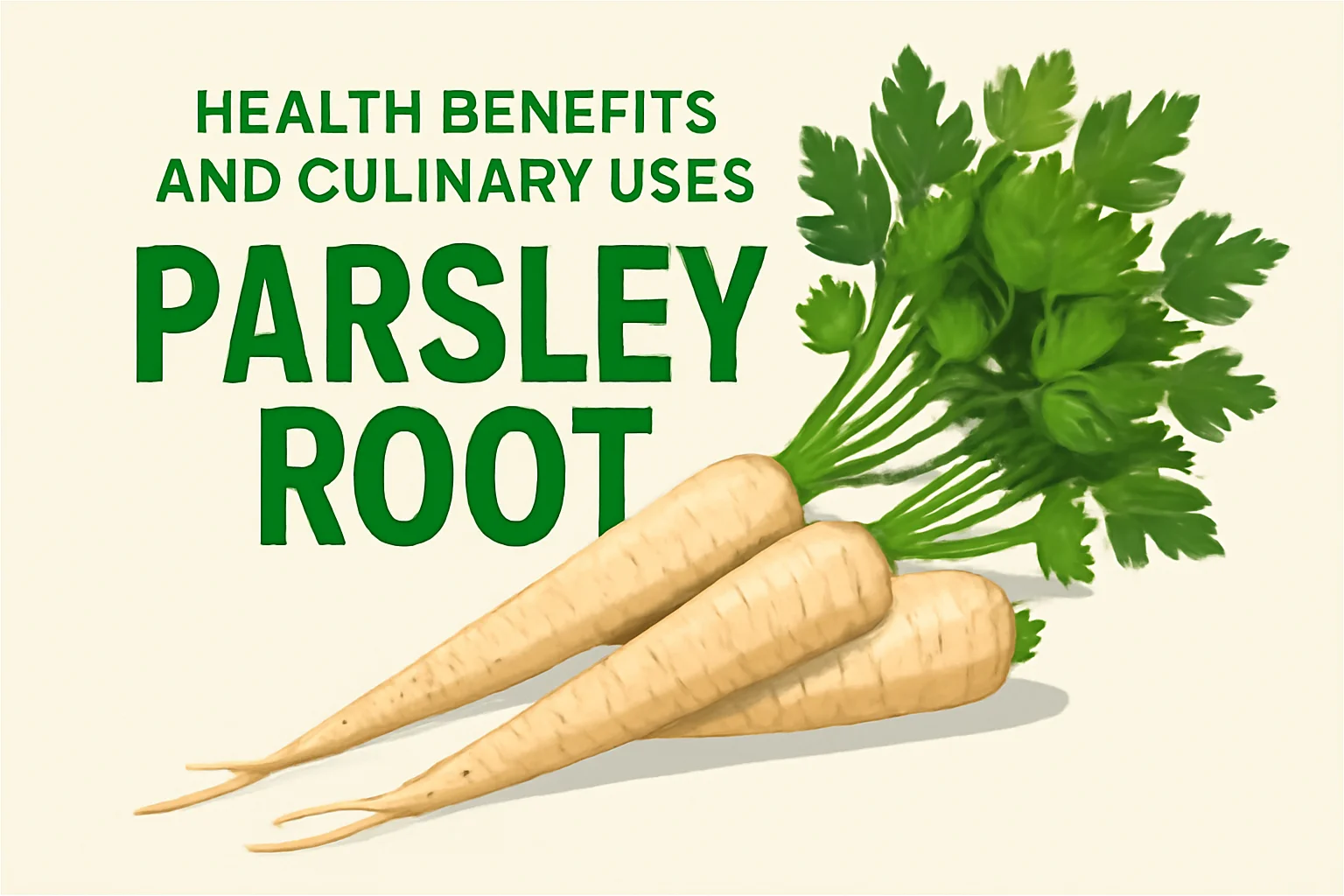
The beneficial effects and uses of parsley root
The root parsley, also known as parsnip, is a vegetable that is justly popular among vegetables. Similar to green parsley, which is also used as a spice, root parsley has numerous beneficial effects. This vegetable, cultivated for millennia, is not only delicious but also rich in nutrients, making it worthwhile to explore the possibilities it offers.
The taste of root parsley is special, slightly sweet, which perfectly complements various dishes. It is especially popular during the winter months, as it can be used as an ingredient in tasty soups, purees, and other dishes. In addition, root parsley contains a variety of nutrients, such as vitamins and minerals, which contribute to healthy eating.
Root parsley is attractive not only for its taste and nutrient content but also for the antioxidants and anti-inflammatory compounds it contains. These beneficial effects can help prevent and treat various health problems. Therefore, root parsley is not just a tasty vegetable but also a true superfood that is worth incorporating into our diet.
The Nutritional Profile of Root Parsley
Root parsley is extremely rich in nutrients, making it not only a delicious but also a healthy choice. It is primarily abundant in vitamins and minerals, with notable amounts of vitamin C and vitamin K. Vitamin C plays an important role in strengthening the immune system, helping to protect cells, and contributing to skin health. Vitamin K is essential for blood clotting and bone health.
In addition, root parsley is rich in minerals such as potassium, calcium, and magnesium. Potassium contributes to heart health and helps regulate blood pressure, while calcium and magnesium play important roles in the functioning of bones and muscles. Root parsley is also high in fiber, which promotes digestion and contributes to gut health.
It is worth consuming root parsley not only for its vitamins and minerals but also for its antioxidant content. Antioxidants help the body defend against free radicals, which can contribute to the development of chronic diseases. Compounds found in root parsley, such as flavonoids and phenols, have anti-inflammatory effects, thereby helping to reduce inflammatory conditions in the body.
Uses in the Kitchen
Root parsley is a versatile vegetable that can be used in a variety of dishes. It is most commonly found as an ingredient in soups and purees. The flavor of root parsley complements broth beautifully, especially in vegetable soups, where the cooking of root vegetables together provides a rich, flavorful base.
Additionally, root parsley can also be prepared as a puree, which makes an excellent side dish for meats, fish, or vegetarian dishes. Making root parsley puree is incredibly simple: just boil it, then mash it, possibly seasoning it with a little butter or olive oil. The resulting puree is creamy and delicious, providing a healthy alternative to mashed potatoes.
We can also use root parsley sliced, for example, in salads or vegetable sides. The fresh taste of root parsley pairs well with crunchy vegetables and adds color to salads. Due to its flavor, root parsley is often used in various pickling processes, as its savory taste enhances the flavor profile of dishes.
Furthermore, root parsley can also be found in dried form, making it usable as a spice. Dried root parsley has a more intense flavor than fresh, so it is advisable to use it in smaller amounts. This spice pairs particularly well with stews, ragouts, and other dishes that require long cooking times.
The Health Benefits of Root Parsley
Root parsley has numerous beneficial effects that can contribute to overall health maintenance. In addition to antioxidants and anti-inflammatory compounds, root parsley can also aid in detoxification. The compounds it contains can stimulate liver function, thereby promoting the removal of toxins from the body.
Moreover, consuming root parsley can support digestive health. Due to its fiber content, it promotes bowel movements, which helps prevent constipation. Regular consumption of root parsley can contribute to maintaining the balance of gut flora, which is essential for digestive processes.
The diuretic effect of root parsley is also noteworthy, as it can help reduce bloating and fluid retention. This property can be particularly beneficial in achieving weight loss goals, as it can help normalize the body’s water balance.
Additionally, root parsley is rich in folic acid, which plays an important role in cell renewal and blood formation. Its consumption is especially recommended for pregnant women, as folic acid is essential for the healthy development of the fetus.
However, it is important to note that while root parsley has many beneficial effects, everyone may react differently to various foods. Therefore, if we are struggling with health issues or following a special diet, it is advisable to consult our doctor before making significant changes to our diet.
**Disclaimer:** This article does not constitute medical advice. In case of health issues, everyone should follow their doctor’s advice.

